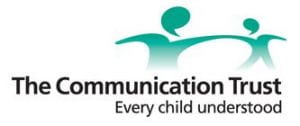One of the largest areas of learning need in schools is speech, language and communication needs (SLCN), with almost a quarter (22.6%) of pupils requiring SEND support having this identified as their primary type of need, and 14.6% of EHCPs issued for this reason. (2018 SEND Census) It is an area that is fundamental to learning, to socialisation, and to functioning successfully in society. Yet it is also an area where there is a challenge to get specialist support in schools, with shortfalls in provision, sometimes considered due to shifts in NHS priorities and CCG commissioning, with some schools contracting private speech and language therapists to bridge the gap.
Many schools, in all phases, will be facing challenges in meeting pupils’ needs, both in assessment and provision. One place they could look for help is, inevitably, the internet, with a lot of sites providing useful information for staff development and practical guidance for working with pupils.
 A good place to start is the Communication Trust, an umbrella organisation for not-for-profit groups providing guidance and support for a broad range of practitioners. Their self-assessment framework helps anyone to evaluate their current level of knowledge and understanding and offers suggestions for training that can move their practice on.
A good place to start is the Communication Trust, an umbrella organisation for not-for-profit groups providing guidance and support for a broad range of practitioners. Their self-assessment framework helps anyone to evaluate their current level of knowledge and understanding and offers suggestions for training that can move their practice on.
The trust also have a plethora of practical resources focused on working in schools, for instance, there is a very straightforward booklet on teaching phonics to learners with SLCN, which has sections on specific conditions such as dyspraxia, stammering, and Down’s Syndrome.
Another good source for online CPD is the SEND gateway, now hosted by NASEN. Several sets of materials were developed in 2012 that can be approached in different ways. The SLCN modules have a strategic element for whole school approaches and the management of resources, through assessment and profiling of pupils to working with other agencies and delivering interventions.
Some training providers offer well regarded courses such as Ican who also have the free Talking Point booklets a range of guides for various stages of speech and language development with appropriate activities. There is also a link to the Communication Cookbook, originally sponsored by BT, which can be purchased online. However, it can be downloaded for free from the TES.
 It is also well worth paying a visit to Commtap . These are a range of activities for all levels compiled by speech and language therapists to guide non-specialists in how they can work with children in school. They can be filtered in different ways, such as key stage or area of focus, and give clear instructions on how to conduct sessions.
It is also well worth paying a visit to Commtap . These are a range of activities for all levels compiled by speech and language therapists to guide non-specialists in how they can work with children in school. They can be filtered in different ways, such as key stage or area of focus, and give clear instructions on how to conduct sessions.
A more structured set of free resources have been developed by Tobii-Dynavox, a company known for providing electronic communication aids, including eye-gaze devices, and for its Boardmaker software and the associated Mayer-Johnson PCS symbols. They have been working on Core First learning. This is a structured approach to reading development based around core words, those that make up the bulk of our interactions. Thirty-six words are included, with three books concentrating on each of them, making 108 books in all, which can be downloaded in pdf format. These build on previously learnt vocabulary and use colourful photographs on each page as illustrations. A scheme of work is provided, although some practitioners may choose to simply use the books to supplement existing approaches.
Speech language and communication is a complex area, which often benefits from expert advice and guidance, however, if you know where to look, practical support can easily be found.

